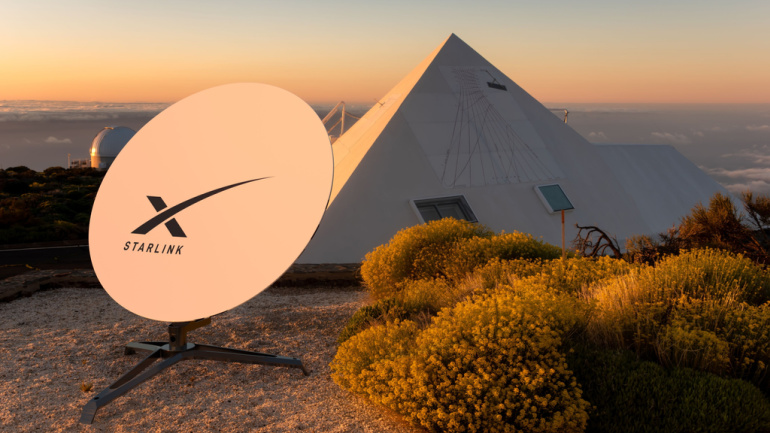What if one day there was no Internet? The Web as we know it would be gone for good. Sites like Facebook, Twitter and Google would only exist in the memories of people who lived through the Great Disconnection. The Internet is the greatest invention and technological revolution since the printing press. Since its creation, we’ve built our whole lives around this innovation, depending on it for almost everything. But what would happen if the Internet was no more? What would life be like without the Internet? The thought experiment There are no attempts to dismantle the Internet that we are aware of, therefore you have nothing to be concerned about. But isn’t it fascinating to consider what might happen if the Internet would suddenly shut down? If the Internet suddenly went down at this very moment, we wouldn’t make a huge issue out of it, as it happens sometimes,…
FCC to tackle space debris problem New regulations have been proposed by the US Federal Communications Commission (FCC) to address the escalating space debris issue. The regulatory body hopes to cut the 25-year period when low Earth orbit (LEO) satellites are permitted to linger in space after their mission ends to no more than five years. The probability of this space debris colliding with something important such as a working satellite would be reduced if this unused equipment were to be deorbited sooner. Read more at: https://tinyurl.com/2p9aj6jk TalkTalk establishes two new wholesale divisions TalkTalk has revealed the launch of two new wholesale businesses. The first focuses on business-to-business wholesale services, while the second focuses on the consumer market sector. The Business Wholesale Services segment will provide resellers, aggregators and system integrators with premium and high bandwidth services. Meanwhile, the company’s nearly one million home clients will be served by the…
Google has a long history of secretly working on complex, high-tech projects, and the company has disclosed yet another such initiative. Aalyria, a new telecom company, was introduced on Monday. Within Google, it was known by the code name “Minkowski.” Despite the lack of precise information, sources claim that the company has been developing software for satellite-based, high-speed communications networks. Aalyria stated in a media release that its goal is to manage extremely fast, remarkably secure, and highly complicated communication systems that span land, sea, air, near space and deep space. However, Google declined to disclose information about Aalyria, including how long it has been developing the technology and how many employees are joining the startup. The Loon group’s software will be converted by Aalyria experts into a cloud-based system for controlling intricate networks that link high-speed Internet to objects such as satellites, aircraft and ships. …
The EU Secure Connectivity Program has welcomed Rivada Space Networks, a wireless technology company focused on open access wholesale and the fusion of terrestrial and satellite communications. The EU space-based, secure communication system proposes to use the most recent quantum communication technology for secure encryption in order to accommodate growing and changing governmental and business demands. The program aims to enable access to advanced, dependable and high-speed connectivity for citizens and businesses across Europe, including coverage of communication dead zones. This initiative is aimed at ensuring cohesion among Member States, and providing the long-term availability of worldwide uninterrupted secure and cost-effective satellite communication services. In its submission to the EU Secure Connectivity Program’s preliminary market consultation, Rivada Space Networks outlined the main characteristics of its laser-linked LEO constellation architecture. The business also suggests that the member nations and project stakeholders should use its Open Access Wireless Marketplace platform…
In order to extend mobile service to isolated rural regions, the Belgian communications operator BICS has inked a deal with the satellite-direct-to-phone telecoms business Lynk. This agreement will make it possible for mobile network operators (MNOs) to provide services to subscribers in rural areas in North America, the Caribbean, Latin America, South-East Asia, and a number of rural African regions. BICS focuses on cloud, mobility and IoT, while offering digital communications on a worldwide scale. The company also collaborates with MNOs and mobile virtual network operators (MVNOs). This collaboration aims to solve the problem of remote locations that currently lack any form of mobile connectivity. BICS will use its network to connect the cell carriers with the Lynk satellite constellation. Lynk’s solution enables conventional roaming partner integration without requiring that the mobile operators’ networks undergo hardware or software upgrades, thereby expanding coverage to outlying regions, islands, and…
T-Mobile is collaborating with SpaceX to expand its network coverage. Last week, the two businesses announced that they will collaborate to provide extensive cellular access, including full coverage in most parts of the United States. The collaboration seeks to beam down connectivity using SpaceX’s fleet of low Earth orbit satellites for the benefit of T-Mobile customers. With this initiative, T-Mobile consumers should be able to connect to the SpaceX satellites through a new network, transmitted from Starlink’s satellites utilizing T-Mobile’s midband spectrum across the country. SpaceX currently provides home internet access globally through its Starlink program. Even though T-Mobile hasn’t yet provided details on the network’s deployment, the company claims that this collaboration should provide nearly complete coverage almost anywhere in the US. The two companies intend to provide this service in order to replace the use of satellite phones in off-the-grid locations such as national parks or…
PLDT and Omnispace to develop space-based 5G In order to create space-based 5G applications, US satellite and communications company Omnispace has partnered with the wireless arm of Philippine telecom PLDT, Smart. The goal of the partnership is to use LEO satellites to investigate and demonstrate the potential of 5G communications. This comes after the debut of Omnispace Spark’s first phase, which the business bills as “the world’s first global 5G-capable satellite network.” The list of potential use cases includes expanding network coverage for disaster relief, allowing 5G connection in remote locations and more. Read more at: https://tinyurl.com/32zdkdrm AT&T donates to digital literacy programs 65,000 individuals are expected to benefit from AT&T’s digital literacy programs by learning how to use computers and mobile devices securely and responsibly. More than 400 libraries and community centers will get bilingual, in-person digital literacy training as part of AT&T’s $6 million in donations. The lessons…
CMA probes ViaSat acquisition of Inmarsat The Competition and Markets Authority (CMA) of the UK has said that it is starting its own investigation into ViaSat’s acquisition of Inmarsat. The two operators had initially expressed their expectations that the transaction would conclude in the middle of 2022, with input from different regulatory organizations. By October 5, the CMA is anticipated to decide if a thorough probe into this transaction is necessary. The merged corporation will initially operate a fleet of 19 satellites in various orbits and spectrum regions, with ten more in the works. Read more at: https://tinyurl.com/y8zcwwtz FCC stops subsidies for SpaceX Starlink The FCC has refused to approve the Starlink proposal, stating that it was uncertain if the technology could reach the advertised speeds in its current state. The regulator highlighted that Ookla’s most recent projections indicated a reduction in the speeds Starlink may offer in 2022. According…
UltiSat, a global provider of essential communications solutions, has announced a new distribution agreement with OneWeb Technologies to include its LEO-based satellite communications services in the UltiSat portfolio for the government and mobility industries. The deal is part of UltiSat’s continuous product and service expansion plan, which began in late 2021. To enable worldwide end-to-end connectivity, the distribution agreement will make use of OneWeb’s expanding fleet of LEO communications satellites and approved remote terminals. Equipment integration, field services, 24×7 customer support, logistics and lifecycle management will be provided by UltiSat. UltiSat and OneWeb Technologies will collaborate to make a wider selection of client application environments more accessible, all of which will be commercially available and operated as a service. UltiSat has also announced a strategic distribution and integration deal with Cobham Satcom, a prominent global provider of land and maritime satellite communications solutions to the government and enterprise…
BT to make EE its flagship brand BT Group has announced intentions to make EE its main consumer-facing brand. This move is intended to streamline the mobile operator’s service while also propelling the company into new areas of convergence. The BT brand will be more focused on consumers who utilize standalone broadband and telephone services, while BT Sport will remain unchanged. BT will also continue to be the name for its Enterprise and Global divisions. Read more at: https://tinyurl.com/bdk4ef3k NTT and Sky Perfect JSAT forma joint venture NTT and SKY Perfect JSAT have agreed to form a joint venture company to increase humanity’s use of space. The formation of the joint venture is a significant step toward the construction of the space-integrated computer network specified in the two companies’ partnership agreement of 2021. The collaboration will help to advance the global space industry and promote the achievement of a sustainable…













